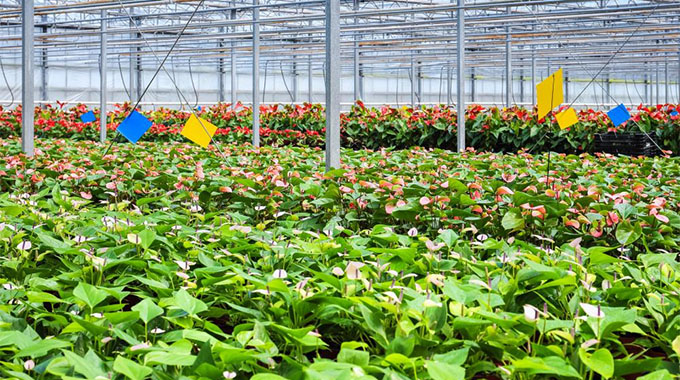Transformation plan to achieve US$5bn tobacco industry by 2025

Edgar Vhera
Agriculture Specialist Writer
STAKEHOLDERS in the tobacco sector are convinced the country can achieve its dream of a US$5 billion tobacco industry by 2025 if the Tobacco Value Chain Transformation Plan (TVCTP) is actualised now to allow it to be rolled out effectively.
The roll out of the plan is in essence a process that requires time and not an event that can be done and concluded on the same day, the stakeholders concur.
Zimbabwe Farmers Union (ZFU) secretary general Mr Paul Zakariya commented: “The TVCTP is a process, not an event. The Government crafted this comprehensive document in 2021, which if accorded the proper attention by all stakeholders will ensure that the country achieves its vision 2030 objectives early.
“This will, however, start with Government changing the regulations as proclaimed in the TVCTP as well as the relevant departments.”
A look at the past season show that the Tobacco Industry and Marketing Board (TIMB) and contractors signed a compliance administration framework that set minimum input package to be given to farmers.
However, the input package was quantity-based only with no value attached to it thereby exposing farmers to machinations of contractors at marketing time.
TIMB is therefore required to verify and approve the value of inputs that contractors should give to farmers for tobacco production on a hectare basis.
As the compliance administration framework was signed in the middle of the 2022/23 season, it did not give TIMB time to monitor the provision of the package from seed bed to land and finally to curing.
For the 2023/24 season TIMB must start monitoring and enforcing contractors as early as June when they start to give farmers inputs for seed development.
Farmers are currently not aware of which buyers have been licenced to buy their crop, a situation which need to be avoided in the coming season if buyers are licenced at the start of the season. Under TIMB’s monitoring for compliance the licences can be revoked.
As 98 percent of the country’s tobacco is exported raw, the move to increase export of processed tobacco needs Government to offer incentives such as tax breaks on new investments in machinery and technology equipment.
On a worrying note, analysis of the 2022 tobacco product exports showed that the average price paid for manufactured products as well as cigarettes was lower than raw tobacco.
There is therefore need to interrogate why this was so, either the manufactured tobacco or cigarettes were from that of a low grade, hence the need to alter the TVCTP to indicate production of high valued products.
The TVCTP also talks of the US$60 million tobacco revolving fund that was meant to localise tobacco funding starting with an initial target of 50 000ha from smallholder farmers, with the seed money supposed to be provided by Treasury.
Tobacco Farmers Union Trust vice president Mr Edward Dune said tobacco farmers are still waiting for the Government to avail the tobacco revolving fund as it will help in capacitation of local firms in the production of tobacco inputs.
“The tobacco revolving fund will have ripple effects throughout the whole economy by stimulating downstream industries to increase their operations thereby creating further employment. Increased localisation of funding will enable the country to eat a large piece of the foreign currency earned from the export of its tobacco unlike currently under the off-shore pre-financing arrangement,” said Mr Dune.
Not all hope is lost as farmers are optimistic that the US$60 million revolving fund will see light of the day just like the horticulture revolving fund that was eventually instituted last year.
Zimbabwe Tobacco Association chief executive officer Mr Rodney Ambrose in an assessment of strides made in the localisation of tobacco financing for production and marketing had this to say:
“Lack of independent funding and Government input support for tobacco has led to private contractors financing the crop but at a cost. Private contractors do not fully fund growers, yet at the end of the season expect farmers to deliver their entire crop to them and their pricing is based on the level of support that they provide.
“That is the reason why growers are always saying that prices they get when they sale their tobacco do not cover costs of production plus a margin hence are not able to re-tool for the next season thereby perpetuating a contractor dependency syndrome,” said Mr Ambrose.
He went on to say farmers have placed their hope on the Government to provide seasonal, concessionary United States dollar funding on the basis of tobacco production history. “The funding must include capital expenditure to enable growers to buy machinery, build new barns, increase irrigation and other infrastructure goods,” continued Mr Ambrose.
The TVCTP bemoaned limited local financing as there was dependency on off-shore pre-financing, lack of standard input package for contractors, high dependency on imported inputs and low exports of value added tobacco products.
In order to localise tobacco financing for production and marketing for the 2023/24 season the Reserve Bank of Zimbabwe (RBZ) need to review the Tobacco Finance Order of 2004 by relaxing the requirement that tobacco merchants finance tobacco production inputs through offshore borrowings.
RBZ and Finance ministry should also increase capacity of local financial institutions to finance tobacco production.
The Ministry of Finance and Economic Development need to promote alternative sources of financing for tobacco production as well as support the recapitalisation of local input manufacturers.
The Government through Zimbabwe and Investment Development Agency (ZIDA) must promote the export of high valued manufactured tobacco products through sector-based incentives.








Comments